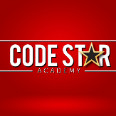Description
SQL is a programming language for managing databases. In other words, various SQL commands help you perform actions on the data you store in relational database management systems. In this SQL course, I will explain the meaning of a database, a potential candidate to store data (Oracle), and the format of a relational system. By format, I mean the way information is stored. In most cases, the table structure is followed by putting data into rows and columns.
Additionally, this SQL course is a great option for beginners since I will explain the SQL basics and common uses. Therefore, it is not necessary for you to have any prior knowledge of SQL or relational databases. All of these concepts are going to be explained in this course on SQL fundamentals and database management!
What is SQL?
Structured Query Language (or SQL for short) is the standard language for manipulating databases in various database management systems. In this SQL course, we will use SQL for controlling data in a database. However, you can use SQL in other fields, such as data science, web development, etc.
An important term in this topic is a query, which can be regarded as one of the SQL fundamentals. By definition, a query refers to an instruction that requires the database management system to perform a specific function. For instance, you can send a query for deleting or adding a record.
What is a relational database?
A relational database is a collection of data that is divided into several parts. As I have mentioned, a relational database contains data in tables. Hence, many people use relational database management systems to maintain datasets.
Each row in a table is a record with a unique ID referred to as the key. The columns of the table contain attributes of the data. It is common that every record has values for every attribute. This makes it easy to establish relationships between different data.
What will you find in this SQL online course?
In this SQL course, I will begin by explaining the main concepts related to databases. For instance, I will discuss the meaning of a database, Oracle, table, relational database, entity-relationship logic in databases, etc. Additionally, this SQL online course will review SQL: the programming language for controlling the content stored in databases.
Furthermore, I will provide you the steps for installing a VirtualBox since the installation of Oracle might cause some issues for users. After learning the SQL basics, you will be introduced to a topic that might be more interesting: SQL statements, table descriptions, the SELECT statement, aliasing the columns, the DISTINCT keyword, and other important principles.
After the explanations on SQL fundamentals, I will start discussing the WHERE clause, comparison, and logical operators. This SQL course will examine many more functions, operators, and actions that you can use on your database. Therefore, start learning with me in this SQL online tutorial to have access to the principles of SQL and database management anytime.
What Will You Learn?
- SQL basics and principles
- Understanding databases and relational databases
- How to perform various actions on data: restricting, filtering, grouping, converting, etc.
- How to use SQL functions
Requirements
- No prior knowledge necessary
Curriculum
Course consist of total 6h 28min of content, in total.
Section 1: Course Introduction
Section 2: Database Concepts
Section 3: Preparation for SQL Development
Section 4: Entering the Database!
Section 5: Conditional Retrieval
Section 6: Converting Data & Conversion Functions
Section 7: Ordering the Results
Section 8: Single Row Functions
Section 9: Group Functions
Section 10: Grouping the Data
Section 11: Selecting From Multiple Tables (Joins)
Section 12: Subqueries (Query inside a Query)
Section 13: SET Operators
Section 14: Manipulating and Playing with the Data (DML Statements)
Section 15: Manipulating Tables - DDL Statements
About the Instructor
Code Star Academy is an offshoot from the Oracle Master who is focusing on providing students with high-quality training for modern needs. On BitDegree, their Head of Engineering Omer Faruk Ince is offering an opportunity to learn SQL from scratch. Omer is obsessed with practical examples, and he’ll share hundreds of them to help you get the taste of what it really is to work with SQL.
Code Star Academy’s trainer Omer has been working in software development for over 15 years. In that time, he had a chance and need to learn and operate in different programming languages (such as C, C++, Java, PHP, Python, and others), and then more than 10 years ago he also focused on SQL&PL/SQL programming, as well as Oracle Technologies.
Right now, Omer has a massive database of 15M+ active users entrusted for his supervision! As you can imagine, you don’t offer the management of such a gigantic database just to any random programmer, do you? So, his Omer’s projects speak for him. His experience both in programming and project management allows him to share the essentials of what you need to learn when studying different programming languages and databases. So, join Code Star Academy’s training on BitDegree, and become a coding star, too!


